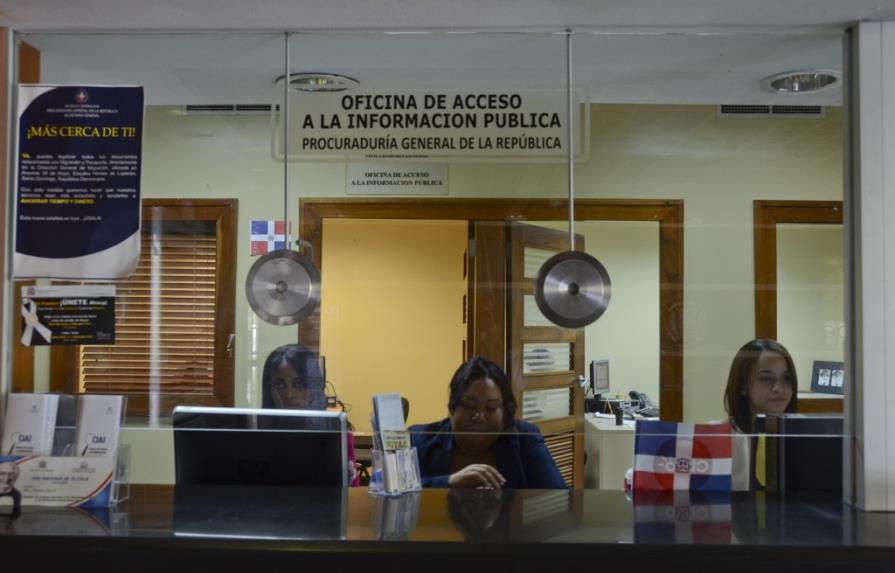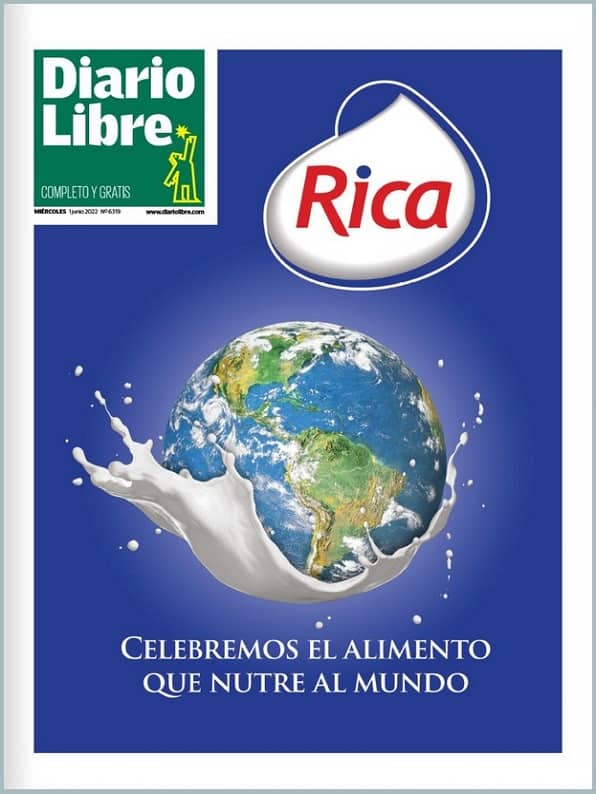In ten years, what has access to public information achieved?

Law 200-04 which was demanded by representatives of the media and civil society, has brought important results, but it still has barriers to overcome, among them the refusal by officials.
SD. Since before the new millennia, representatives of the newspaper world and civil society were demanding a law that guaranteed access to public information, such as those in other countries. The 28 July, the legislation that as demanded celebrates 10 years since it was enacted. It has served as a basis for establishing 200 offices of Access to Public Information (OAI), which have received thousands of requests, but still have the improvement of the websites for transparency pending, and the fight with officials that refuse to reveal how they administer the state institutions.
In July 2004, then Senator Jose Tomas Perez, who introduced a proposal that paved the way for the passing of the General Law of Public Access to Public Information 200-04, said to Diario Libre: "This thing of making purchases under the table in a tricky way, with fake tenders which in the end are won by a company without knowing why, will come to an end."
Today, ten years later, he evaluates things: "In spite of the fact that that have been some failures in its application, I feel that the law has been fulfilling part of its application, because it has contributed to make the public institutions more transparent (....). Information at was previously considered to be "delicate" are even on the Internet."
The president of the Dominican College of Journalists (CDP), Olivo de Leon, feels that the law has helped to lose "the fear" of demanding information from public officials. He stressed that denials (to provide information) have resulted in judicial processes, and "nearly all of these have been decided in favor of the plaintiff."
But he has a complaint: "We expected something more; we expected that by this time, many more sectors would have taken advantage of the law. We thought that the press sector was going to get more use. In the case of the politicians, we thought that the use was going to be massive, above all the opposition politicians."
According to the statistical registers of the different OAI, the students are the ones that take the most advantage of the law in order to request information for thesis or academic assignments, ordinary citizens and in last place, the press.
The OAI of the Senate, for example, received between 2011 and the middle of 2014, a total of 1.195 requests and barely 16.8% were for journalistic investigations.
The veteran journalist Juan Bolivar Diaz, one of those who fought for the law, says that he understands that the legislation improved the perspective of obtaining information. "In fact, in some cases they have obtained important information, which would not have been accessible to citizens any other way," he says.
Nevertheless, he feels that the press does not make more use of the law because investigative journalism is in crisis. "It is in crisis for several reasons: the first is because the salary of reporters and journalists entered into crisis (...). Second, because the sources of going deeper, both governmental as well as private, have tried to cooperate with the journalists, with the reporters and then they find more difficulties because many journalists do not want to clash with those persons that give publicity, or give them a salary, and other benefits, as the state has given, including pensions."
In a survey carried out by Diario Libre, and answered by 22 journalists, 12 feel that the law came to extend the time required for getting information. The deadline established by the legislation is 15 work days, extendible by another 10.
"Many times they give the information, but it is not complete. The reporter has to be satisfied because to complain and insist means another 15 day, and the issue loses its relevance," answered one of those surveyed.
Some were of the opinion that when they referred to a journalist of the OAI the data flowed slower, or ended up being a mechanism or the official to control which documents to hand over.
At the present time there are 200 Responsibles for Access to the Information (RAIs) appointed, who receive a salary that can be less than RD$35,000 earned by the representative o the National Institute of Hydraulic Resources to the RD$130,000 received by the person covering the Chamber of Deputies, according to their Transparency webpages.
In some institutions, an official has this responsibility, such as the case of the Office for the Reorganization of Transportation (Opret), whose person in charge of Information Access is the deputy director Leonel Carrasco.
In the mayor's offices of the municipal districts something similar occurs, but because they lack funds to pay a RAI, or not have space in their city halls to house an OAI, says Pedro Richardson, the director of the Dominican Association of Municipal Districts. Of the 231 municipal districts, only 16.7% have an OAI in operation.
What do the people want?
The OAI of the Attorney General's office was the first to open. It was used as a pilot program in 2006. Since 2012 it has received some 300 requests per year, with the principle information being procedures, payrolls and about drugs. "These offices empower the citizens in relation to the power of information. Many times there would be a taboo that one institution could not be accessed or asked for information," says Stalin Polanco, the director.
Th OAI o the Chamber of Deputies is one of the most active. It has received 6,176 requests from its founding in 2007 until 2003. Nonetheless, Catalina Olea, the director, complains that many requests are focused on requiring salary data, or on an issue that is being dealt with in the press at that time, and not to go deeper into the aspects such as budgetary execution. "The objective of the law is not to know how much money a person is making, but rather to see if they are really paying for officials to go and do an efficient job," she said.
A survey done last April by the Council for Access to Information through Transparency, to 350 students and labor unionists, showed that 141 have asked for information and of this number 47% was about the public payroll and 30% about the sworn statement of assets.
How many comply?
In 2012, Citizen Participation carried out its sixth monitoring of the application of Law 200-04, and of 52 institutions that were evaluated, only three received the maximum grade of 90 with regards to the overall fulfillment of the legislation: Public Contracts; the Attorney General and the Superintendent of Pensions.
A more recent evaluation, done in May 2014 by the Director General of Governmental Ethics and Integrity, , based on the standardization project for Transparency Websites, concluded that only four of the 138 institutions comply 100% with the active transparency requirements, which is to say with relation to budget, purchases, payrolls and other data.
These are the Administrator for Labor Risks, the Controller General, the Directorate of Governmental Accounting, and the Social Security Treasury. Another 22 were able to score between 90.19 and 98.57.
"The offices of Access to Public Administration fill an important space, because they open for you some structures in all of the public institutions," concludes Berenice Barinas, the manager of Governmental Transparency.
Do the people make use or know of their right to find information?
Of 350 persons surveyed by the Council for Access to the Information through Transparency, regarding their knowledge and application of Law 200-04, 67% said that they did not know about the legislation.
The persons surveyed were students from the UASD, O&M, UTESA, PUCMM, and UCSD and representatives of the different labor unions. Fully three quarters of them (75%) were in favor of the law being promoted in the schools and communities.
For the regional vice-president of the Inter-American Press Society, Miguel Franjul, the law continues to be "a law of luxury"."Or perhaps, one of the best0kept secrets" in our country, and although it might seem to be an uncomfortable hyperbole, it is not. I perceive that a very low percentage of the citizens know about it, and because of this its use has been insufficient."
"It does not appear to cause managers or responsible persons any great enthusiasm to attend the demands for information," he said.
The director general of Governmental Ethics and Integrity, Marino Vinicio Castillo, said in June that the dissemination of knowledge regarding the law would reach Primary and Secondary educational levels. This commitment is required in th Decree 486-12 that created the department.


 Diario Libre
Diario Libre
 Diario Libre
Diario Libre